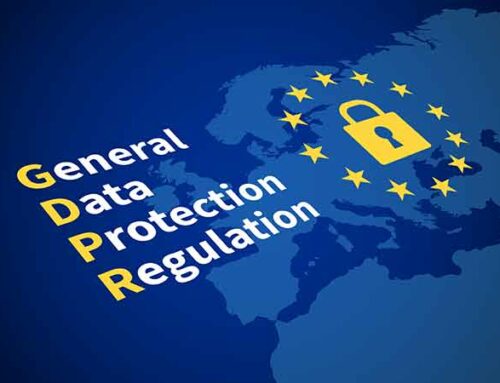 These days more than ever, it’s important to be aware of privacy regulations. The GDPR (General Data Protection Regulation) laws regarding data privacy in European countries (and for European citizens located elsewhere) are setting a precedent for other countries to follow. Marketers need to be conscious that all relationships begin with a basic degree of trust, and data security is a critical component in establishing that trust.
These days more than ever, it’s important to be aware of privacy regulations. The GDPR (General Data Protection Regulation) laws regarding data privacy in European countries (and for European citizens located elsewhere) are setting a precedent for other countries to follow. Marketers need to be conscious that all relationships begin with a basic degree of trust, and data security is a critical component in establishing that trust.
Marketing and sales are becoming increasingly digitized, and along with that digitization comes new tools to create extensive customer profiles according to the customer’s needs, wants and behaviors. All along we’ve known that collecting and retaining customer data is a vital component to successful marketing, but what’s been changing over the last few years is establishing rules to ensure that data has been harvested in an ethical manner, and the introduction of rules to protect it once you have it, as there are big risks if you don’t.
Some steep penalties have resulted for recent data breaches:
- Marriot – fined $123 million dollars by the UK data protection agency, for alleged knowledge of a data breach that existed when Marriott purchased Starwood Resorts last year.
- Facebook – fined $5 billion by the Federal Trade Commission for violating privacy regulations.
- Google – in January, France’s National Data Protection Commission (CNIL) levied a record €50 million GDPR fine against Google, which arose from data abuses involving how Android accounts were configured, how their mobile data was handled and how the consent to handle that data was obtained. And this isn’t the only fine Google has faced over the past couple of years.
While these penalties haven’t affected much in the way of how these multi-billion-dollar corporations do business (they’re more like a slap on the wrist for these giants), smaller companies could be more severely impacted. For example, even if laws in a country don’t yet exist or are applied inconsistently, the company within that country is still subject to the GDPR regulations for their customers that are EU citizens. GDPR fines can be as much as 4% of a company’s revenue or 20 million euros, whichever is greater. And if the fine doesn’t severely impact business, the bad press might.
It’s only a matter of time before other countries implement and/or start to adhere to more stringent regulations like the GDPR. Now is a great opportunity to take the initiative and incorporate a data privacy infrastructure into your business model. If you intend to generate positive, successful relationships with your customers, credibility and awareness are crucial.
JR Direct has engaged in successful client relationships for 30 years. Contact us to find out how we can help you to create a custom solution that meets your specific marketing, technology or data needs.






